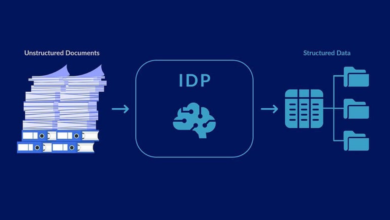
Anonymous Proxies: Enhancing Online Privacy and Security
Introduction to Anonymous Proxies
In the present era, keeping information private is growing to be more complex. Anonymous proxies function as middlemen between a user’s device and the internet, concealing their IP address which improves their security. When people route their internet traffic through these proxies, they are capable of protecting their personal data and change the way they are identified online.
Types of Anonymous Proxies
Anonymous proxies come in various forms, each offering different levels of anonymity and functionality.
Transparent Proxies
Transparent proxies, also referred to as Level 3 proxies, do not mask the IP address of the user and they communicate their presence to the address server. Their use is mainly geared towards content filtering and caching, and does not provide any level of anonymity.
Anonymous Proxies
Anonymous proxies are standard ones that mask the users’ IP address but go ahead to acknowledge themselves as proxies at the server. In return, they receive moderate degree of anonymity, which in turn meets the users’ general privacy requirements.
Elite Proxies
Elite proxies, popularly known as Level 1 proxies, receive the highest degree of anonymity by concealing the user’s IP address and also the use of proxies for internet surfing. This enables maximally private and secure internet activities, which most users desire.
Key Features of Anonymous Proxies
Anonymous proxies provide several features that enhance online privacy and user experience.
IP Address Masking
By replacing the user’s IP address with that of the proxy server, anonymous proxies prevent websites from tracking the user’s real location and identity.
Access to Geo-Restricted Content
Through the use of alternative proxies, users can easily switch their regions and gain unrestricted access to geo-blocked content in their country.
Enhanced Security
Proxies enable users to be more anonymous and less susceptible to unnecessary user profiling from a host of cyber-attacks, adding extra precaution to screen-vetted malicious web pages.
Support for Multiple Protocols
An increased number of internet users enables proxy servers to support multiple HTTP, HTTPS, SOCKS, and FTP protocols, establishing them as a holistic proxy solution.
Use Cases and Applications
Anonymous proxies are utilized in various scenarios to protect user privacy and facilitate access to information.
Protecting User Identity
Proxy servers are driven by users who seek the utmost level of discretion by switching IP addresses constantly to prevent hacking, Reduce tracking of sensitive data calls made and gain access proxy encodings.
Avoiding Censorship
Proxy-embedded computers in highly monitored regions restrict tracking users to concealed switch IP addresses enabling users to replace proxy servers with web pages of their choice.
Accessing Home Content Abroad
Traveling enables the user to remotely gain restricted content from their country of residency through anonymous proxies in the country of their visit.
Secure File Transfers
Anonymous proxies make secure file transfers by hiding the user’s identity and encrypting the data being sent.
Conclusion
Anonymous proxies are important to online privacy and security because they hide users’ IP addresses and allow access to restricted content. Knowing the various forms of anonymous proxies and their functions helps users obtain the right level of anonymity that suits their needs.




